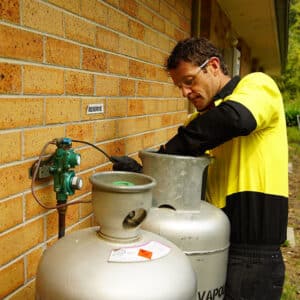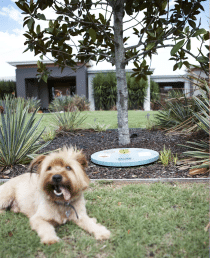What Do Natural Gas Connection Bans Mean for LPG?
The Climate Change and Greenhouse Gas Reduction (Natural Gas Transition) Amendment Bill 2022 was recently passed through the Australian Capital Territory Legislative Assembly, paving the way for the ACT to end new mains gas network connections.
The legislation means no new gas connections for natural gas will be allowed in residential and commercial areas, although connections in industrial areas are still allowed until further legislation is passed.
This legislation affects new residential and commercial development projects, as well as renovations that remove and then reinstate previously existing mains gas connections.
All connections to liquified petroleum gas (LPG) are still allowed under this legislation.
In addition to this, the Victorian Government has announced its Gas Substitution Roadmap, and starting from January 1 2024 new mains gas network connections for new dwellings, apartment buildings, and residential subdivisions requiring planning permits are being phased out.
The Victorian Government has clarified that this change does not impact the use of LPG.
LPG is a versatile and available alternative for new construction and renovations.
In this blog, we’ll highlight the benefits of LPG for homes and businesses where consumers wish to continue using gas as a fuel but are also seeking to reduce their carbon footprint and decarbonise their operations.
LPG as a Great Alternative
LPG is a great alternative, as the Natural Gas Transition Amendment Bill and Gas Substitution Roadmap do not impact the supply or use of LPG in ACT and Victorian homes and businesses.
LPG is a highly versatile energy source for homes and businesses and remains a critical part of Australia’s energy mix as we transition to a Net Zero economy by 2050.
It is used widely for heating, cooking and hot water by homeowners, while businesses rely on LPG for high-grade heat in high volumes.
LPG has less than a third of the emissions intensity of electricity[1], meaning electrical appliances would need to be three times more efficient than the equivalent LPG appliance for the emissions from using that appliance to be equivalent[2].
And in some cases, existing natural gas appliances can be modified to run on LPG when converted by a licensed gasfitter so new appliances do not need to be purchased.
ELGAS is also meeting the needs of residential and commercial customers across the ACT, Victoria and Australia looking to decarbonise and purchase carbon-neutral LPG today, having recently been awarded product certification for our LPG from Climate Active Australia.
[1] Source: Australian Government, National Greenhouse Accounts Factors, August 2021; AEMO, Carbon Dioxide Equivalent Intensity Index.
[2] Pathway to zero emissions for LPG: A Report for Gas Energy Australia and the Australia Gas Industry Trust, Frontier Economics, January 2023.
ELGAS Carbon Neutral Gas Plan Certification
Climate Active certification recognises that ELGAS can supply LPG that has credibly achieved carbon neutral status and ensures the 100 percent carbon neutral pricing plans we offer our customers are fit for purpose.
In accordance with Australian law, ELGAS only purchases carbon offset units from Australian Government-approved projects in Australia and overseas.
ELGAS Residential and Commercial LPG plans: Choices for Every Need and Budget
ELGAS offers a variety of LPG supply modes and plans that are tailored to meet the individual needs and budgets of our customers.
LPG Gas Bottle Exchange
 The typical home LPG exchange service involves two 45kg gas bottles connected by a changeover valve and fitted with gas regulators.
The typical home LPG exchange service involves two 45kg gas bottles connected by a changeover valve and fitted with gas regulators.
When one cylinder is empty, you simply turn the changeover valve so it points to the full cylinder – this is your reminder to order a fresh 45kg LPG cylinder from ELGAS.
Commercial LPG cylinder exchange services vary according to the specific requirements of each business customer.
Local ELGAS delivery drivers safely exchange the empty cylinders with a full cylinder and the cost of the LPG cylinder exchange services depends on the pricing plan you’ve chosen.
LPG Tanker Delivery
 ELGAS LPG tanker delivery involves gas bottles between 45kg and 210kg, or LPG tanks from 0.5 tonne up to 50 tonne.
ELGAS LPG tanker delivery involves gas bottles between 45kg and 210kg, or LPG tanks from 0.5 tonne up to 50 tonne.
ELGAS offers site engineering support, with qualified and experienced technicians ensuring full compliance with local Government regulations, Australian Standards, and Industry Codes.
LPG infrastructure and equipment is supplied, installed and maintained by ELGAS, with remote monitoring of usage available, and our service includes automatic scheduling of LPG tanker refills.
EasyGas DownUnder™
ELGAS EasyGas DownUnder™ is an award-winning design for storing 90kg LPG cylinders underground – and out of sight.
 It is the first and only underground home LPG supply product, and a popular innovation for off-grid homeowners looking for a safe and easy alternative to installing LPG cylinders and equipment adjacent to the external walls of their property.
It is the first and only underground home LPG supply product, and a popular innovation for off-grid homeowners looking for a safe and easy alternative to installing LPG cylinders and equipment adjacent to the external walls of their property.
ELGAS works with builders and homeowners to identify a convenient and discrete location on the property to install the cylinder that is easy to access.
EasyGas DownUnder™ installations feature a fire-resistant lid that sits flush with the ground, and once installed an experienced and licensed tradesperson can install pipework to connect the installation to the house.
Once in place, ELGAS use exclusive remote monitoring of usage to automatically schedule refills.
EasyGas DownUnder™ installations are limited to select areas and regions of Australia, including the ACT and Victoria.
To request a quote or learn more give us a call on 131 161.
New Residential LPG customer?
New Business LPG customer?
Existing ELGAS customer?
- Outdoor Heater: Outdoor Gas Heaters – Patio Heater Guide - September 22, 2024
- LPG Meaning – LPG Means: What Does LPG Stand For - August 31, 2024
- What Size & How Many Gas Bottles Do I Need? - August 29, 2024
Steve Reynolds
Technical Consultant
Steve Reynolds is a leading expert in the LPG industry with over 22 years of experience. As part of the national management team at ELGAS, Steve ensures the safe and efficient storage, handling, and transportation of LPG. He serves as the lead investigator for incidents and collaborates with authorities on industry developments.
Steve is a technical advisor to Standards Australia and Gas Energy Australia (GEA), and an active member of the World LPG Association (WLPGA), contributing to global standards and technical reviews. He holds a BSc. (Hons) in Industrial Chemistry from UNSW and has held senior safety and technical roles at ELGAS, making him a trusted authority in LPG safety and standards.